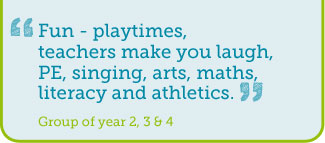Intent
Our approach to mathematics supports our key aim of challenging pupils so they can become confident, independent and enthusiastic mathematicians. Our maths curriculum has been explicitly designed to deliver highly effective lessons covering all aspects of mathematics including fluency, reasoning and problem solving, to develop each child’s ability to recall and apply knowledge accurately. Through the use of concrete resources such as cubes, shapes and base 10 pupils have a better understanding when solving abstract questions, such as word problems. As well as this, an important feature of our daily Maths lessons is to revisit prior learning so that all pupils can retrieve knowledge and apply this to new learning.
Above all, we intend to give our pupils the opportunity to appreciate mathematics in its wider, real-life context and to be able to apply their maths skills beyond school life.
Implementation
At Westwood Academy, we adapt the White Rose Maths program to guide our teaching practices. We focus on the small steps White Rose provides to ensure we break down skills in order for them to be embedded. The small steps are adapted and provide opportunities to revisit prior learning and deepen understanding. Throughout KS1 and KS2 each maths lesson follows the same structure, including a flashback to revisit prior learning, teaching input to develop for fluency followed by independent practice then reasoning and problem solving. Across the school, teachers adapt and supplement with additional resources to ensure the children learn effectively. We encourage pupils to work into their Maths books to support number formation and understanding when setting out methods. Reasoning and problem solving is a part of our daily lessons. This is modelled with the class teacher so that reasoning skills are developed and children are equipped with the skills needed to solve problems.
Within EYFS including our reception and nursery classes, we apply short maths sessions each day to model and teach skills using the updated EYFS White Rose scheme. Reception take part in their Maths session in the morning, followed by continuous provision activities. Adults model high quality vocabulary and provide access that are cross curricular whilst building upon prior learning. Our Nursery class carry out Maths sessions in the afternoon with the children who will be going to school in the following year. The environment is enriched with activities that inspire the children and encourage them to participate in Maths activities. Each activity is linked to the current topic. As well as this, daily counting activities are carried out as the children come into Nursery, the number song is listened to and the children are exposed to number lines all linking to real life activities that help organise the Nursery day.We engage parents in their pupils learning through providing weekly home learng which mirrors our school learning from Year 1- Year 6. Parental workshops and engagement projects are in place to ensure parents are aware of the strategies we used in school.
At Westwood Academy, our goal is to make mathematics enjoyable and accessible for every child. We believe that a strong foundation in maths is not just about getting the right answers but about fostering a love for learning that will stay with children throughout their education journey.
Impact
By the end of their primary education, all pupils can demonstrate a secure knowledge of number, calculate fluently and with good understanding, articulate patterns and relationships as well as logically deconstructing problems in order to solve them. We aim for pupils to see the purpose and significance of all areas of maths, so that they can analyse new information and apply their maths skills to their own lives on a daily basis.
The impact of all that we implement in maths is not only evident in our books. The children from nursery are practising fundamental mathematical skills scaffolding their learning. The curriculum structure teaches a sequence of skills allowing the pupils to make links in their learning.
By the time our children leave Westwood, they will:
- Be secure in number knowledge and have a deep understanding of the value of number
(subitising). - Have a wide variety of mathematical knowledge relating to multiplication, division,
fractions, decimals, percentages, statistics, geometry and measurement. - Show fluency when using fundamental mathematical skills.
- Engage in enriched discussions explaining a mathematical answer.
- Show confidence when using mathematical skills in the real world.
We measure the impact of our curriculum using the following methods:
- A reflection on standards achieved against the planned outcomes and key knowledge
- White Rose end of unit assessments enable us to track progress, predict future performance and benchmark against national averages
- Pupil conferencing; meaningful discussions with children about their learning provide valuable insights into their understanding, challenges, and areas of interest
We will enhance children’s cultural capital by using money, telling the time and knowing about shapes, how to add and subtract, multiply and divide. Using real-life problems shows children it’s not just about numbers; it’s about how useful their maths skills can be in their day-to-day lives.








